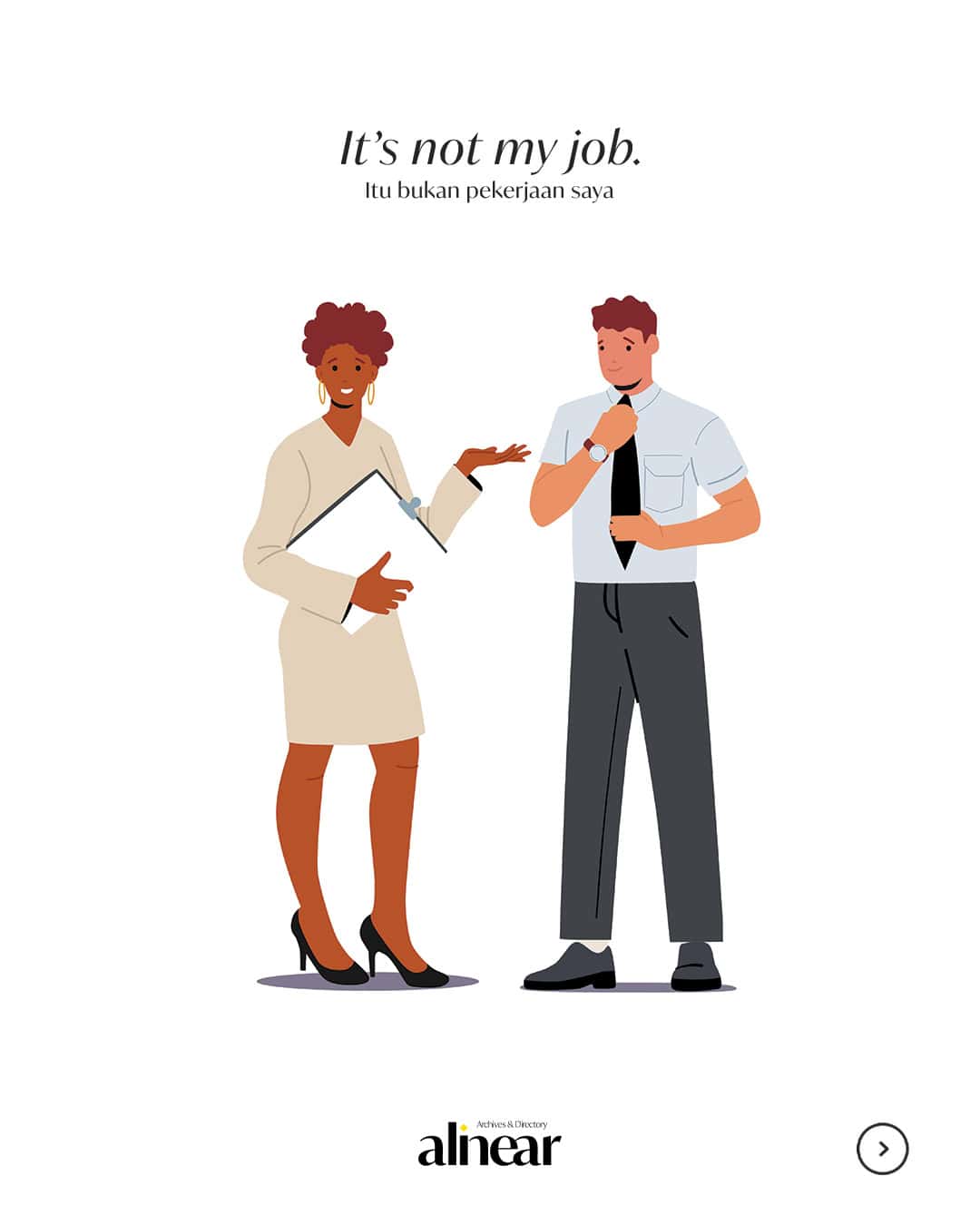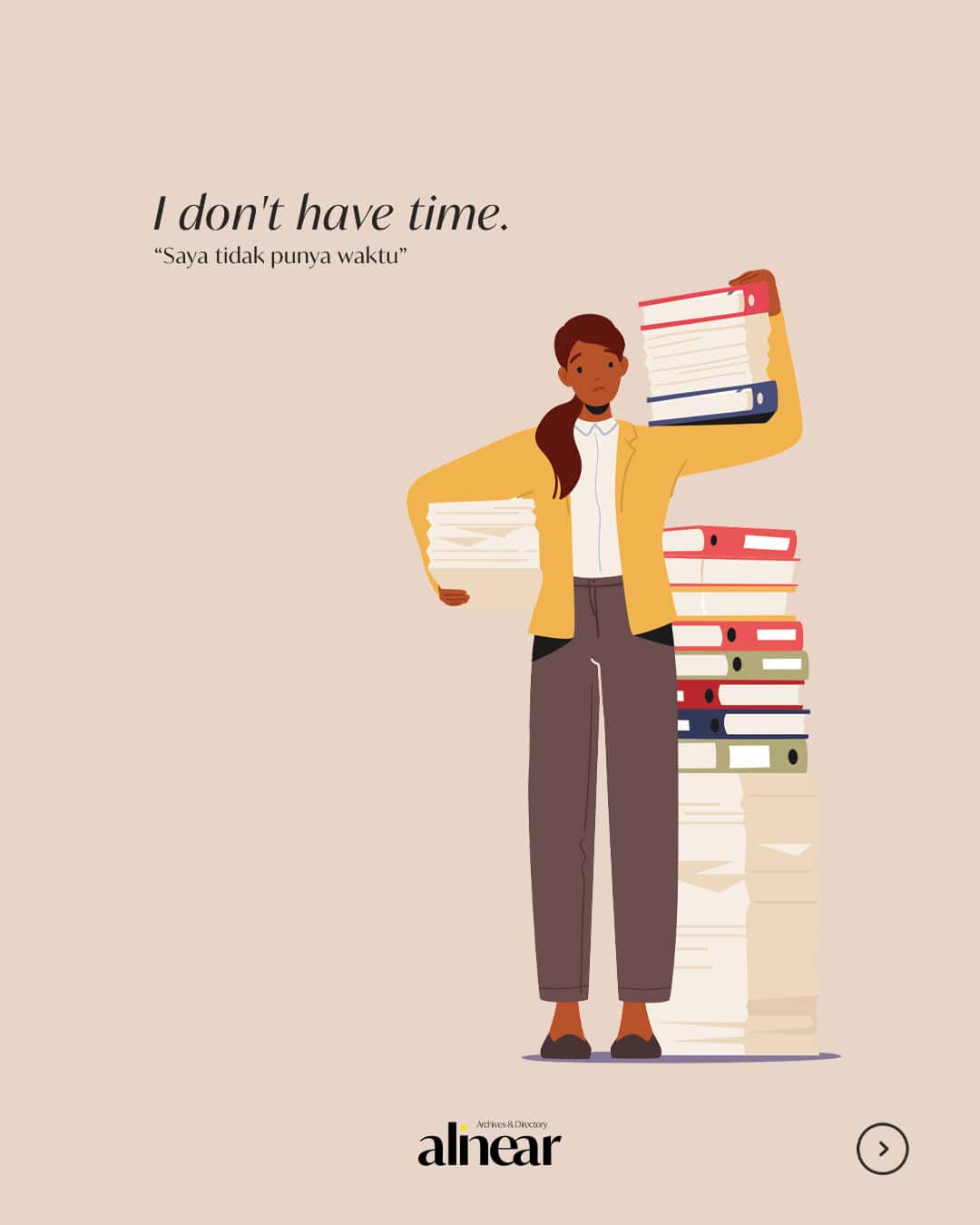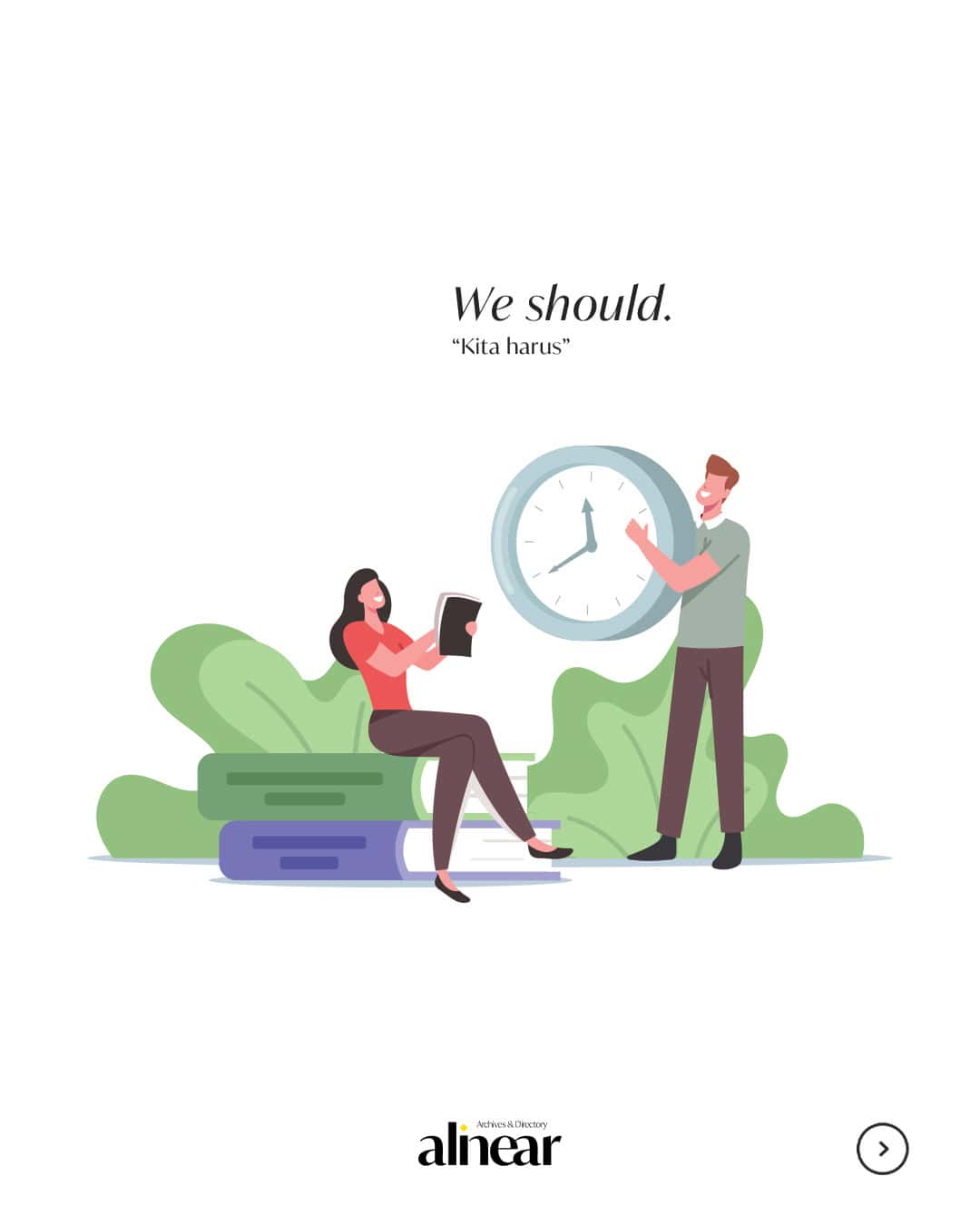
"Remember, if you don't have something productive to say, don't say anything at all. The wrong delivery or the use of inappropriate words can be a trigger for people to underestimate you in a professional or work environment."

Photo source: Alinear Indonesia Docs.

Photo source: Alinear Indonesia Docs.

Photo source: Alinear Indonesia Docs.

Photo source: Alinear Indonesia Docs.

Photo source: Alinear Indonesia Docs.

Photo source: Alinear Indonesia Docs.

Photo source: Alinear Indonesia Docs.













